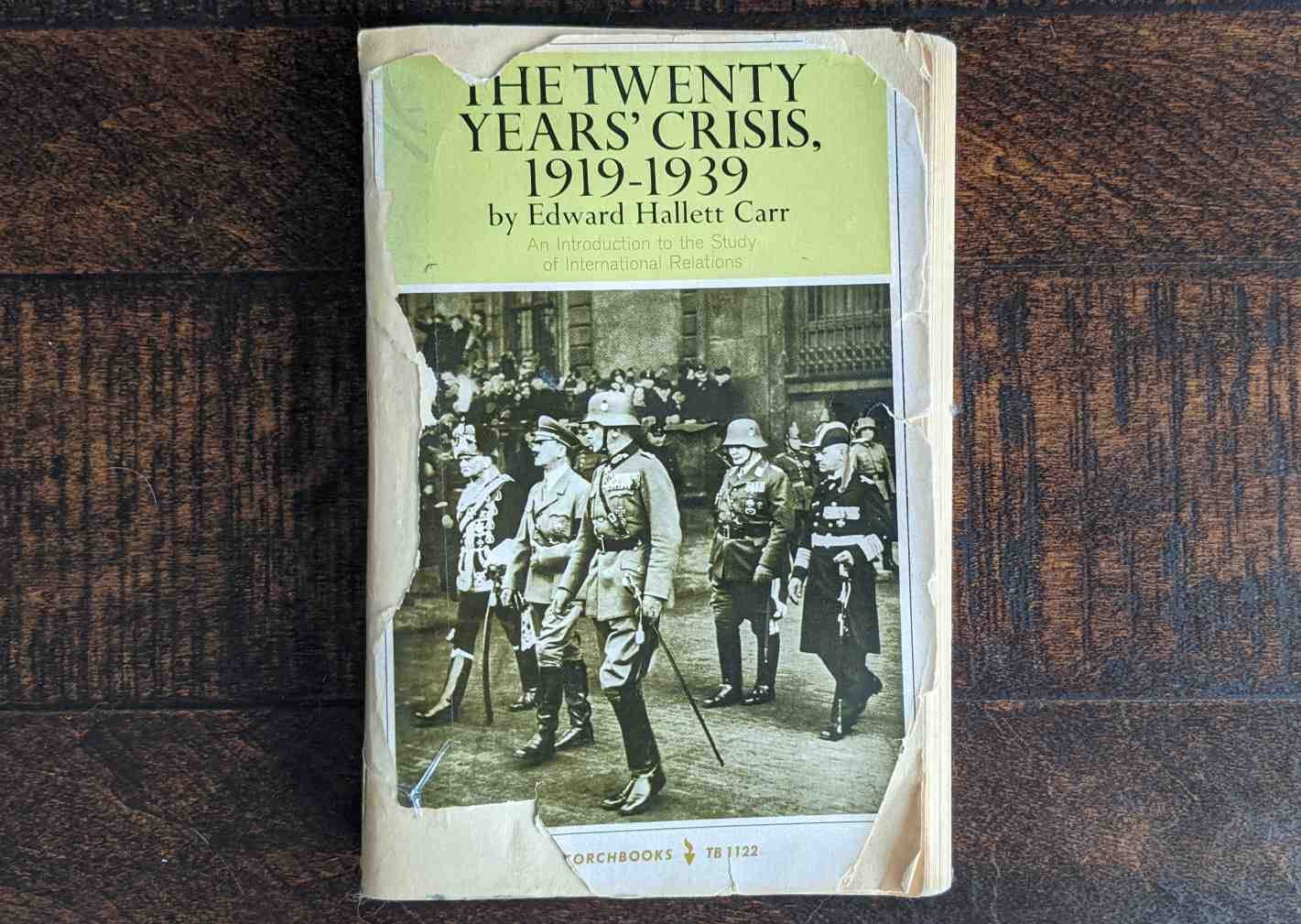In the end, I think withdrawing from Afghanistan is probably the right call. I’ll cram my reasoning into this footnote,1 but the bottom line is that it seems unlikely that we’ll achieve something in the 21st year that we couldn’t achieve in the first 20. We were there long enough to literally raise an army of soldiers from birth like in Star Wars: Episode II - Attack of the Clones. But, ultimately, the main similarity with Attack of the Clones is that we spent an ungodly sum of money on something that arguably shouldn’t have happened at all.
This is a heartbreaking failure. Jonathan Rauch highlighted some of the humanitarian progress made during our two decades in the country, which includes a 50 percent drop in infant mortality, a six-year increase in life expectancy, and a four-year increase in school for women. But now, Afghans have to live under the Taliban, a group so heinous that you can insult anyone by calling them “the Taliban of” whatever. If I thought that the relatively low-involvement status quo was sustainable, I might find the “let’s just stay forever” argument convincing. But we can’t stay forever; the failure comes from the fact that the government we spent two decades helping to build ended up having the life span of a Brita filter.
In January of 2002, newly-installed Afghan President Hamid Karzai came to speak at my college. It was a gigantic campus event; it was like a David Bowie concert, but for nerds (though I think David Bowie for nerds might just be Morrissey). I can report that absolutely no-one present at that speech thought that the Afghan nation-building project wouldn’t work. There was certainly no skepticism from me, a doe-eyed idealist with a belief in the possibilities for positive change that would make a Care Bear roll its eyes and do the jack-you-off hand motion. The failure in Afghanistan is, for me, a major marker in a 20-year learning process about the limits of the United States’ ability to influence events. And actually, I should say that it’s been a 20-year learning process so far; I have every confidence in my ability to get things wrong and support bad decisions for another 20 years.
One of the best books I read in college was The Twenty Years’ Crisis by E.H. Carr. The book is a critique of the Wilsonian idealists whose naiveite, Carr believes, enabled Hitler’s rise. It was first published in 1939, and a second edition was published in 1945 with an extra chapter titled: Well Well Well: I Pretty Much Nailed That One On the Noggin, Didn’t I?2
In the book, Carr, who was a British diplomat at the peace conference that ended World War I, describes the shortcomings of the treaty process. His argument came to be seen as an exemplar of political realism. Though Carr has no love for the hardline conservatives at the conference, whom he views as petty and parochial, his harshest criticism is saved for the architects of the League of Nations. Carr views these delegates as hopelessly naïve, and affords them the level of respect one would give to a daft child chasing a butterfly. Carr is basically a disgruntled subordinate sitting around grumbling about how all his superiors are morons. I admit: I kind of like the guy.
When I read the book in college, it presented big problems for me, because my sympathies were very much with the Wilsonian idealists. At the time, I would have described my foreign policy views as “liberal institutionalist”, meaning that I believed that international organizations could help shape a better world. At the very least, I thought that moral considerations should play a role in foreign policy. I was also turned off by the harsh nihilism of the realists, and it has to be said: Realism has a fatalistic, “everything is fucked” aura to it. The stereotype of a realist is of a stuffy, white-haired hawk, the type of guy who seduces his wife by saying something like “Shall we perform our duty to the Fatherland, Frau Bismarck?” But the stereotype should probably be of a beret-wearing, chain-smoking waif draped over a chair in a Paris coffeehouse, because realism has a general attitude of “all is lost and life is naught but suffering” that makes Nietzsche look like Mary Poppins.
Of course, Carr had a point: Everything was fucked. At least, it was fucked as soon as myopic nationalists and wishful idealists combined to create a system that pretty much guaranteed a German backlash to the Treaty of Versailles and provided no way to respond to it. Carr thinks that the idea that nations will sublimate their interests out of deference to a utopian, internationalist vision is the height of lunacy. And he happened to publish at a moment when readers across Europe could look up from his book, see a German tank rolling down the street, and think: “Oh shit -- he was right.”
College-aged me found Carr’s pessimism threatening. At the time, two major, formative events in international relations were the genocides in Rwanda and Yugoslavia. There was a feeling among many that the United States and NATO had done too little to prevent those tragedies. I subscribed to that view, as much as I could subscribe to any view, because it’s worth remembering that my brain was still very much in its larval stage.
The early 2000s were probably the high-water mark for the belief that the proactive foreign policy, sometimes including military action, could achieve big humanitarian gains and help people realize their presumably-liberal-democratic goals. Consider the context: The West was still high-fiving each other over the end of the Cold War. There was a belief that most people in the world would opt for liberal democracy if only given the choice. In the Kosovo War, NATO more-or-less achieved its goals at a relatively low cost, and after the war, Slobodan Milošević was ousted and replaced by a good-enough regime. The most recent examples of what happens after you win a war and remove the government were still Germany and Japan after World War II; we didn’t fully realize that the post-war transformations of Germany and Japan should probably be seen as astonishingly-successful projects. It honestly is unbelievable that we’ve reached a point where people complain that Germany doesn’t spend enough on defense; it’s like if it became common 70 years from now to complain that teenage boys aren’t horny enough, or that kids at amusement parks are too well-behaved.
That context is probably why basically everyone who heard Hamid Karzai speak in early 2002 assumed that we were hearing the new president of a somewhat-orderly, democratic state. Ousting the Taliban was assumed to be the hard part; installing the new government was just crossing “t”s and dotting “i”s. It would be like Germany and Japan, right? Maybe things would be a bit bumpy at first, but Afghanistan was floating down the river towards liberal democracy, and that current only takes you one direction.
Of course, that was before Iraq and Libya, and before Hamid Karzai decided to run Afghanistan like a mob-owned nightclub minus the occasional Sinatra drop-in. It was before the Arab Spring saw several countries replace their old dictators with chaos and then with new old dictators, and before Poland and Hungary proved to everyone except Tucker Carlson that democracy can give way to one-party authoritarianism. The past 20 years have been brutal for the idea that movement towards human rights and democracy is easy or inevitable, and especially to the idea that that United States Military can bring those things about.
If Carr were alive, it would probably be time for another round of told-ya-so-ing (maybe a third edition subtitled “Still Right After a Hundred Goddamned Years!”). The mistake that modern nation-builders made was similar to the one made by the idealists after World War I: They failed to see that liberal ideals would be steamrolled by national and parochial interests. Worse yet, they clung to their vision even as evidence accumulated that things weren’t going as planned. Basically, they crafted their policies based on how they would like the world to be, not how it is.
Speaking for myself, I had trouble coming to terms with the fact that we’re mostly helpless3 when it comes to supporting democratic movements in other countries. It’s hard for me to see people risking their lives for democracy and human rights in places like Afghanistan, Egypt, and Hong Kong and accept that basically all we can do is give them a thumbs-up and say “good luck!” Those “We stand with the people of ______” statements that the State Department issues remind me of the scene in Life of Brian where Brian’s followers sing “For He’s a Jolly Good Fellow” to Brian while he’s being crucified. Gee, thanks! Glad to have your support!
But I think the reality is that our ability to help liberal democracy take root in other countries is extremely limited. That’s especially true if we’re talking specifically about military involvement in another country. In many ways, direct US involvement is the kiss of death for the legitimacy for a democracy movement; it will cause the movement to be seen by some as a US puppet regime. Sorry to get all Freddy Riedenschneider on you, but our involvement changes the equation. Sometimes, the best thing we can do to help is to butt the fuck out.
Even though I’ve spent this essay talking up E.H. Carr so much that I should be getting a cut of his book residuals (I’d expect a Venmo if he hadn’t been dead for 40 years), I don’t consider myself a realist. Realists are still too cynical for me. It should be noted that, though the last 20 years have been a hefty kick in the plums for liberal idealists, the entire post-war period has been tricky for realists; the hippie love-fest that has broken out on the European continent, in which the border between Germany and Belgium is guarded by nothing more than a souvenir shop and a Pret a Manger, is an outcome that’s basically impossible under classical realism. I haven’t given up on humanitarian concerns or the power of ideas. I’ve just become much more practical about when and how we can promote them.
The nation-building era of US foreign policy should be thoroughly, definitively, permanently over. It simply doesn’t work. Pro-democracy movements will have to make their own way, and basically all we can give them is a hearty round of applause and maybe the occasional Stinger missile launcher (if they promise to be really careful with it). As Matt Yglesias recently argued, let the military be for military things, and promote humanitarian concerns in other ways. If we have to intervene militarily, then get in, make a Kathryn Bigelow movie, and get out. Don’t hang around expecting to midwife Sweden: Part Two, because what happens after the statues fall really isn’t up to us.
That’s why, though I’m not comfortable with the ice-cold, “shit’s fuckin’ fucked” tone of Joe Biden’s speech, I am accepting of it. I don’t think more time in Afghanistan would make Americans substantially safer or Afghanistan substantially better. I didn’t want things to end this way, but the core lesson realists have for us is that it makes no fucking difference what any of us want -- the world is the way it is. A sad exit from Afghanistan was inevitable. Ultimately, the only thing we got to choose was when it happened.
***POLL FOR NEXT WEEK***
I'd like the next column to be about...
1. The "borders are racist" argument [VOTE FOR THIS]
2. The pressures one feels when they're building a news media thing (e.g. this newsletter) [VOTE FOR THIS]
3. How the big challenges on climate change are in the developing world [VOTE FOR THIS]
Probably the most important point is that I don’t think the status quo of the past few years -- in which we were able to achieve relative peace at a relatively low cost -- was sustainable. Since we delegated front-line fighting to the Afghans in 2015, annual US fatalities have numbered less than two dozen, which is fewer troops than die in training accidents. If that could continue forever, it might be worth staying. But we weren’t capable of eradicating the Taliban, and the Taliban was obviously waiting us out, especially since President Trump made it clear, and then explicit, that we planned to leave. Helping President Ghani, whose popular mandate was dubious, maintain control would have required that we re-dedicate large numbers of troops and large amounts of money to the fight. This would have led to more American and Afghan casualties.
So, question one: Would doing so have made Americans more safe? I don’t think so. Like I said: We’re not able to eradicate the Taliban. To the extent to which the Taliban are able to threaten the US homeland, they don’t need to control a state; controlling territory will do well enough. Under any circumstances, our ability to deter the Taliban comes from our intelligence capabilities and our ability to perform targeted strikes. Engaging in a large-scale (relative to recent years) military campaign would have led to American casualties, so it actually might have increased the Taliban’s ability to kill Americans.
Question two: Would staying have made Afghans better off? Maybe -- Michael O’Hanlon of the Brookings Institution estimates that the net effect of the war was to save hundreds of thousands of lives. Though we can’t assume that the numbers from the previous 20 years would translate to the next 20 years, it’s reasonable to assume that keeping the Taliban at bay could save some lives, and also confer quality-of-life benefits like the ones I mention in the article. But to realize those possible gains, we would have to stay indefinitely. That seems like far too great a commitment for far too uncertain gains, especially when you consider the opportunity costs of those resources and how divisive our continued presence would be among the Afghan people.
The “stay for security reasons” argument seems extremely weak to me, and the “stay for humanitarian reasons” argument seems dubious. So, I favor a withdrawal.
And, obviously, it seems that the Biden Administration got caught off-guard by the speed of the Afghan government’s collapse, and that’s causing the withdrawal to be more chaotic that it should have been. I wish they would have planned better.
Obviously, I made up the extra chapter, but they did publish a revised edition in 1945.
I’ve said “mostly helpless”…well, define “mostly”, right? It’s definitely true that military force is far from the only tool in the foreign policy toolbox, and that diplomacy and other methods have some value as coercive tools. So, I don’t mean to argue that we’re completely helpless when it comes to supporting democracy and human rights in other countries, but I do mean to argue that we’re significantly more helpless than we’d like to be.







My larval brain was ostensibly conservative, and then as a college sophomore I watched George W. declare war on Iraq and I was like what does Iraq have to do with anything? Looking back it would have been helpful to realize that liberal and conservative were about to try on some bizarre new outfits.
I don't disagree necessarily with leaving Afghanistan--based on his vocal opinions dating back to his vice presidency, this is on brand and I can appreciate that--but I'm having a really hard time accepting the outrageous lack of concern for the thousands of people promised visas and left to their fate. That's a disgrace crossing four administrations.
We need to make the serenity prayer a national mantra (though perhaps without the "God" part):
God, grant me the serenity to accept the things I cannot change,
courage to change the things I can,
and wisdom to know the difference.